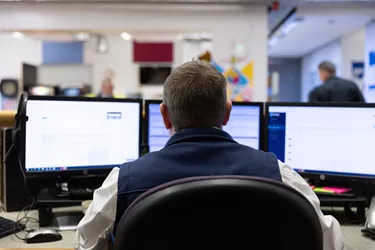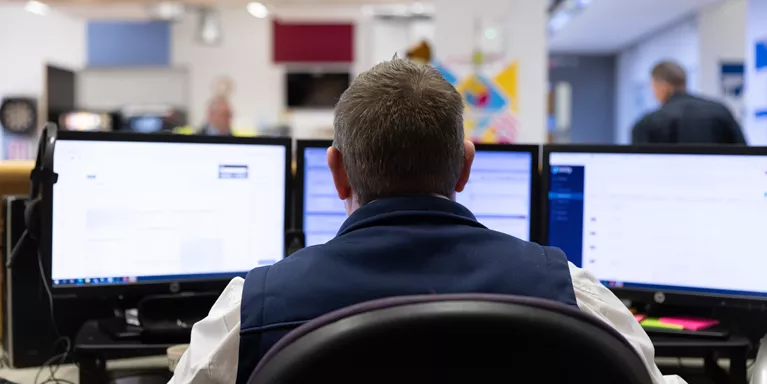Dealing with postnatal depression
Karen blogs about her experiences of postnatal depression.
My son is one year old tomorrow. Some people might use this moment to reflect back to the moment of pure joy when their perfect little baby was born and how the testing times that followed were "so worth it!" For me though, this last year has been one of the hardest of my life.
I've never had the overwhelming desire for babies that some people have, so deciding when to have a child was a challenge. Eventually though, hormones took over and I decided it was time. I expected to find things difficult when the baby arrived as I am a fairly anxious person, but after a traumatic birth experience, I was feeling even more low and exhausted than I'd expected.
It took me three weeks to start to feel a real connection with my son. The vivid flashbacks to labour persisted, but did eventually stop. Breastfeeding was awful (my god it hurts), but we were still going with at least a morning feed when I went back to work at 9 months. I had successfully survived maternity leave, was back at work and enjoying myself to be honest.
It all came to a head when I was briefly hospitalised due to an injury and then my mood spiralled out of control. It felt like I had been running on a treadmill going faster and faster, but then all of a sudden, I just couldn't keep up any more and fell off.
After the injury, I had a lot of help from family because I could not lift him, so we could not be left alone together. But as I slowly recovered, I became anxious about spending time alone with him. I was wary that sometimes I just wanted to sleep or watch TV, rather than talking to or playing with him. When I was with him, my head was filled with images of accidentally hurting him. I was not deliberately thinking these things; they were infesting in my head like a disease.
I could no longer accept how I felt as 'normal' so I finally asked for help. Hearing the doctor say she thought I had postnatal depression was initially a shock, but it started to make sense. The trauma of a challenging labour and the permanent physical damage I unfortunately received was a difficult thing for anyone to have to deal with. My body and mind were trying to protect and heal themselves first, preventing me from giving my full attention to my baby. The doctor also reassured me that it was quite normal to enjoy being back at work.
I am waiting for talking therapy, but have been taking antidepressants in the meantime. I was really worried about this, especially after I had tried them in the past and felt awful. This time though, the side effects weren't nearly as bad. The invasive 'dark thoughts' as I call them have gone away (yay!) and I feel more able to cope with everything a busy life throws at me. I now enjoy seeing the smiling face of my son when I come home from work, and I have the energy to sing songs and splash in the bath with him. Slowly we are building our bond. Part of me feels like I wish I had done something sooner, as you never get that early bonding time back, but I can't turn back the clock and was doing the best job I could at the time.
I love my son, even if it wasn't as instantaneous as some people describe. Postnatal depression is not about whether or not you love your child. Many people find that difficult to understand, so I choose not to talk about it openly. It does help to talk to friends who also had babies at a similar time so can empathise with what I am going through. In the meantime, everyone will carry on thinking that I am a great mum, because I still am. If my story connects with your experience, please don't carry on beating yourself up about it. Please talk to someone. You are not alone.


Information and support
When you’re living with a mental health problem, or supporting someone who is, having access to the right information - about a condition, treatment options, or practical issues - is vital. Visit our information pages to find out more.
Share your story with others
Blogs and stories can show that people with mental health problems are cared about, understood and listened to. We can use it to challenge the status quo and change attitudes.















